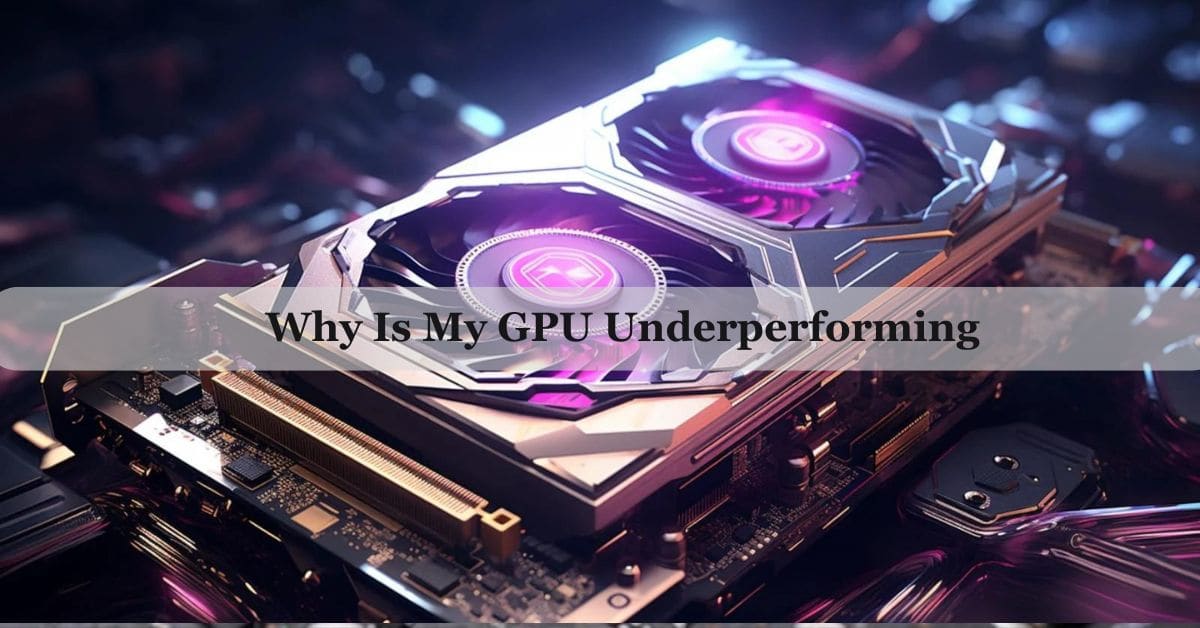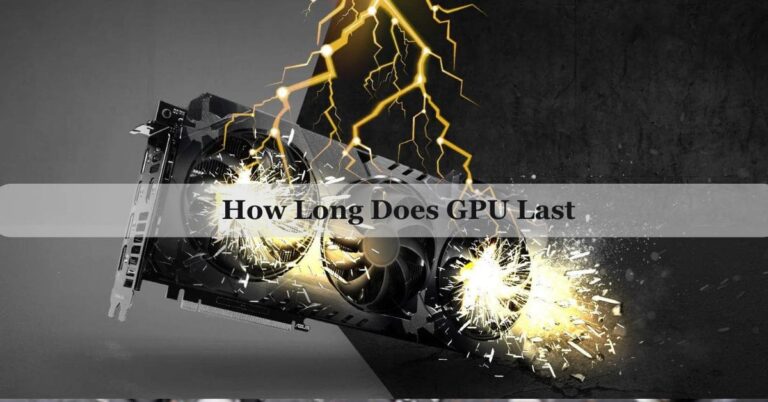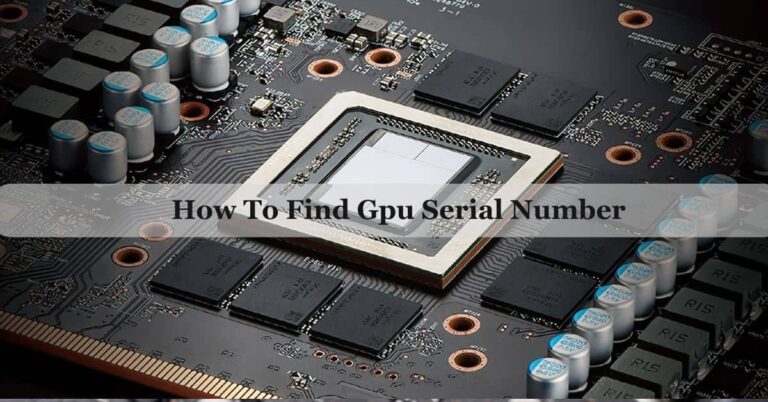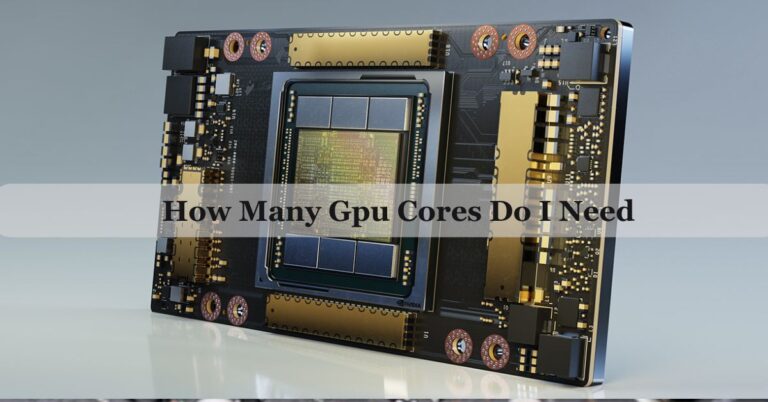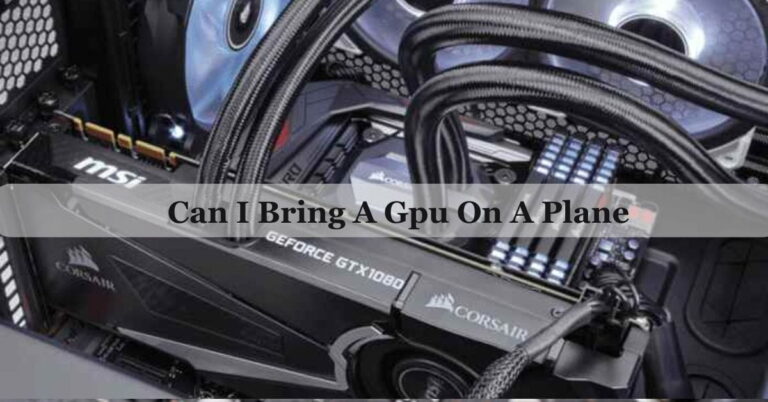Why Is My GPU Underperforming – Complete Guide For 2024!
I recently upgraded my PC, but I started wondering, “Why is my GPU underperforming?” It turns out, my power supply couldn’t keep up with the new GPU. After upgrading the PSU, the performance issues disappeared, and everything ran smoothly again.
Your GPU might be underperforming due to factors like overheating, outdated drivers, insufficient power supply, or software conflicts. Ensuring proper cooling, keeping drivers updated, and checking your power supply can help improve performance.
In this article, we will discuss “Why is my GPU underperforming”.
What Is A GPU?
A GPU, or Graphics Processing Unit, is a part of your computer that helps create images, videos, and animations. It’s important for gaming, video editing, and other tasks that need lots of graphical power.
GPU Underperforming:
When your GPU is underperforming, it means it isn’t working as well as it should. This can happen for many reasons, such as overheating, outdated drivers, not enough power from the power supply, or too many background programs running.
To fix this, make sure your GPU is cool, update your drivers, ensure your power supply is strong enough, and close unnecessary programs. Taking these steps can help your GPU run better and improve your computer’s performance.
Why Is My GPU Underperforming?
When your GPU underperforms, it means it’s not operating at its best capacity. This can happen due to reasons like overheating, outdated drivers, insufficient power supply, or software conflicts.
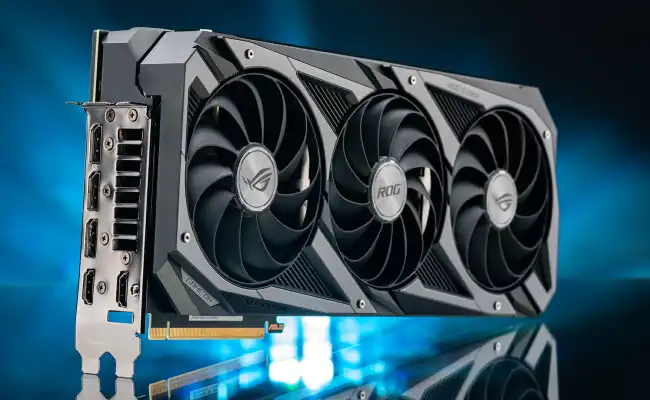
To improve performance, ensure your GPU stays cool, update its drivers regularly, check your power supply for adequacy, and avoid running too many programs simultaneously. These steps can help your GPU function more effectively and enhance your overall computer experience.
Read More: What Should Gpu Temp Be While Gaming – Upgrade Your Knowledge!
How To Fix GPU Underperforming?
If your GPU is not performing well, there are several steps you can take to improve its performance:
Check For Overheating:
Ensure your GPU isn’t overheating, as high temperatures can throttle performance. Clean out dust from your computer’s vents and ensure adequate airflow.
Update Drivers:
Keep your GPU drivers up to date. Manufacturers often release updates that optimize performance and fix bugs.
Verify Power Supply:
Ensure your power supply unit (PSU) provides enough power for your GPU. Upgrading to a higher-wattage PSU may be necessary if your current one is insufficient.
Optimize Settings:
Adjust your GPU settings in the control panel. Lowering graphical settings in games or adjusting power management settings can help improve performance.
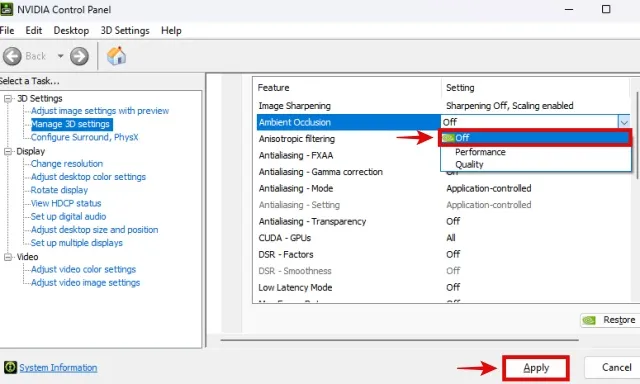
Close Background Programs:
Running multiple programs simultaneously can strain your GPU. Close unnecessary programs to free up resources.
Why Is My GPU Performing Poorly?
Your GPU might be performing poorly due to several reasons such as overheating, outdated drivers, insufficient power supply, or software conflicts. Overheating can slow down performance, so ensure your GPU stays cool.
Updating drivers regularly and checking your power supply for adequacy are also important. Avoiding running too many programs simultaneously can help improve GPU performance. These steps can collectively enhance your GPU’s performance and overall system efficiency.
Why Is My GPU Not Giving Full Performance?
Your GPU may not be delivering full performance due to various reasons. Common causes include overheating, where high temperatures can cause the GPU to throttle its performance to prevent damage. Outdated or incorrect drivers can also limit performance, as they may not be optimized for your GPU’s capabilities.
Does My CPU Affect GPU Performance?
Yes, your CPU can affect GPU performance. The CPU and GPU work closely together in many tasks. If your CPU is too slow or outdated, it can become a bottleneck, limiting the data and instructions it sends to the GPU.
This bottleneck can prevent the GPU from performing at its full potential, especially in tasks that require both components to work together efficiently, like gaming or video rendering. Upgrading your CPU to match the capabilities of your GPU can help maximize overall system performance.
Read More: What Gpu Is Compatible With My Motherboard – Ultimate Guide Of 2024!
Why Is My GPU Suddenly So Weak?
Your GPU may suddenly appear weak due to several factors. One common reason is outdated drivers or software conflicts that can affect its performance. Overheating can also cause the GPU to throttle down its speed to prevent damage, leading to reduced performance.
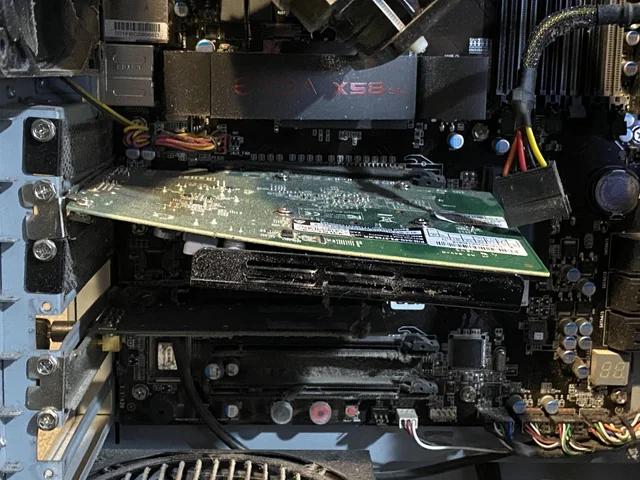
Insufficient power supply can be another factor, where the GPU doesn’t receive enough power to operate at its full capacity. Checking and updating drivers, ensuring proper cooling, and verifying adequate power supply are important steps to address sudden decreases in GPU performance.
Why Is My RTX 3060 Underperforming?
Your RTX 3060 may be underperforming due to factors such as outdated drivers, insufficient power supply, or high temperatures causing thermal throttling. Ensure your drivers are up to date to optimize performance.
Check if your power supply can provide enough power for the GPU’s requirements. Also, monitor and manage temperatures to prevent overheating, which can slow down the GPU.
GPU Underperforming Issues:
GPU underperformance can stem from various issues like overheating, outdated drivers, inadequate power supply, or software conflicts. Overheating can cause the GPU to throttle its performance to prevent damage.
Outdated drivers may not fully utilize the GPU’s capabilities, while insufficient power supply can limit its performance. Resolving software conflicts and keeping drivers updated can often resolve these issues, improving overall GPU performance.
Why Does My GPU Overheat?
Your GPU may overheat due to factors such as dust accumulation, inadequate cooling, or heavy workload. Dust can block airflow and cause heat build up, so regular cleaning is essential.
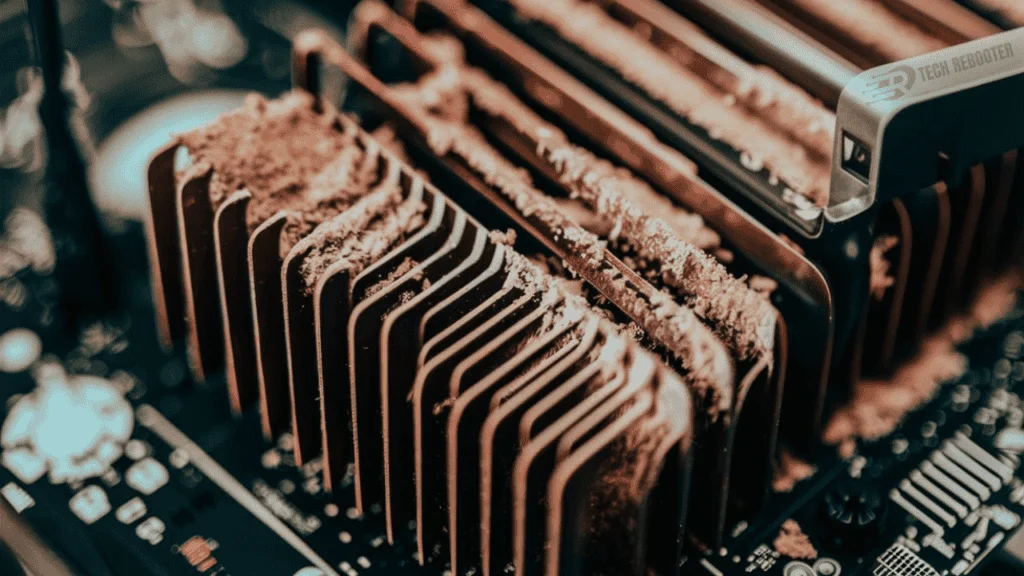
Inadequate cooling, such as insufficient fans or heatsinks, can also lead to overheating. Running demanding tasks for extended periods without adequate cooling can cause temperatures to rise, triggering thermal throttling to protect the GPU.
Read More: What Temperature Is Too Hot For A Gpu – A Complete Guide Of 2024!
Can GPU Settings Impact Performance?
Yes, GPU settings can significantly impact performance. Adjusting settings such as resolution, texture quality, anti-aliasing, and other graphical effects directly affects how much work the GPU needs to perform.
Higher settings require more processing power, which can decrease performance if the GPU cannot handle the workload.
Lowering these settings can improve performance by reducing the GPU’s workload, resulting in smoother gameplay or faster rendering times. Finding the right balance of settings for your GPU and the tasks you’re performing can optimize performance and enhance overall user experience.
Can A Faulty GPU Cause Underperformance?
Yes, a faulty GPU can cause underperformance. Issues like hardware malfunctions, damaged components, or manufacturing defects can directly impact the GPU’s ability to process data and render graphics effectively.
Symptoms may include graphical artifacts, system crashes, or significantly reduced performance in tasks that the GPU would normally handle well.
Can The Type Of Power Connectors Affect GPU Performance?
Yes, the type of power connectors can affect GPU performance. GPUs often require specific power connectors (such as 6-pin, 8-pin, or combinations) to receive sufficient power from the power supply unit (PSU).
Using inadequate or incompatible power connectors can lead to insufficient power delivery to the GPU, causing instability or reduced performance.
Why Does My GPU Perform Poorly In Vr?
Virtual Reality (VR) places high demands on GPUs due to the need for rendering two separate screens simultaneously at high frame rates. Several factors can contribute to poor GPU performance in VR:
Insufficient GPU Power:
When your GPU lacks sufficient power, it struggles to handle demanding tasks like gaming or graphic-intensive applications. This can result in low frame rates, stuttering, or even crashes during operation.
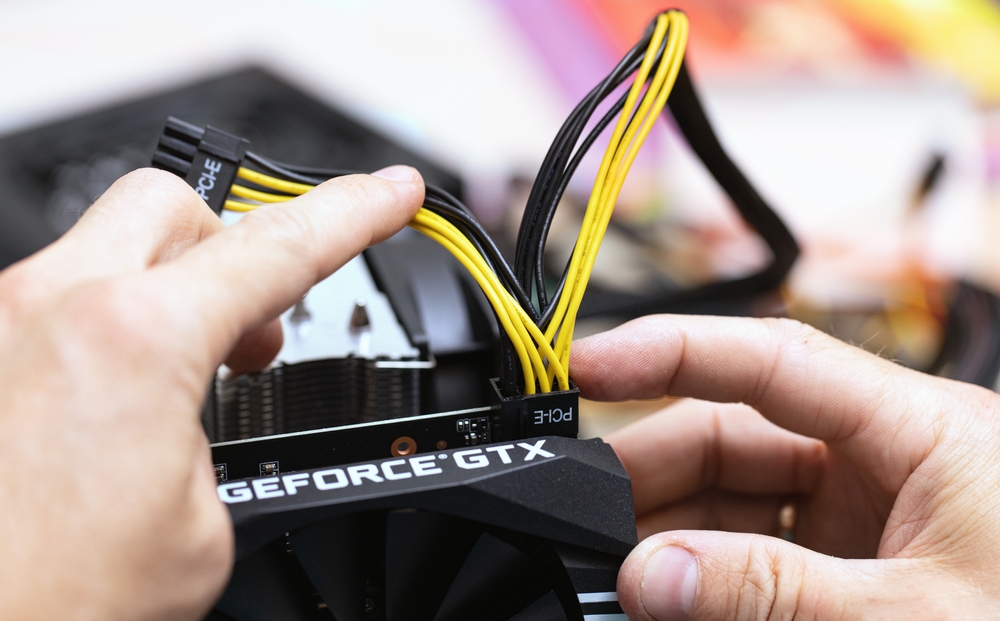
Upgrading to a more powerful GPU can significantly improve performance and allow for smoother gameplay or faster rendering.
Inadequate Cooling:
Effective cooling is crucial for maintaining optimal GPU performance. Without adequate cooling, GPUs can overheat, leading to thermal throttling where the GPU reduces its performance to prevent damage.
Installing additional fans, optimizing airflow within your PC case, or using liquid cooling solutions can help mitigate overheating issues and improve overall GPU performance.
Outdated Drivers:
GPU drivers serve as communication links between your GPU and the operating system. Outdated drivers can hinder performance by lacking optimizations for new games or applications, causing compatibility issues and reduced performance.
Regularly updating your GPU drivers ensures you benefit from performance improvements, bug fixes, and better compatibility with the latest software releases.
Read More: Gpu Only Works In Second Slot – Isolate The Problem!
Can Antivirus Software Impact GPU Performance?
Yes, antivirus software can impact GPU performance. While antivirus programs are essential for protecting your computer from malware and viruses, they can sometimes use system resources, including CPU and GPU cycles, to perform scans or real-time monitoring.

This usage can lead to a slight decrease in overall system performance, including GPU performance, especially during intensive tasks like gaming or rendering. To minimize this impact, ensure your antivirus software is up-to-date and configured to balance protection with system performance.
FAQs:
1. Why Does It Seem Like My RTX 3060 12gb Is Underperforming After Switching From An AMD GPU And Using It For A Couple Of Days?
Your RTX 3060 might seem underperforming after switching from an AMD GPU due to driver conflicts or incorrect settings. Updating drivers and checking GPU settings can help.
2. Why Does My GPU Perform Well In Some Games But Not Others?
Different games have different requirements. Some may be more demanding on your GPU.
3. Can Outdated Drivers Cause My GPU To Underperform?
Yes, outdated drivers can lead to poor performance. Keep your drivers updated.
4. Why Does My GPU Perform Worse On Battery Power?
Laptops often reduce GPU performance to save battery life.
5. Can Background Programs Affect GPU Performance?
Yes, running many programs in the background can slow down your GPU.
6. Why Does My GPU Slow Down Over Time?
Dust build-up, outdated drivers, or aging hardware can cause gradual slowdowns.
7. Does Screen Resolution Affect GPU Performance?
Yes, higher resolutions require more GPU power.
8. Can Multiple Monitors Impact GPU Performance?
Yes, running multiple monitors can put more strain on your GPU.
9. Why Is My GPU Usage Low?
Low GPU usage can be due to software limitations, power settings, or a CPU bottleneck.
10. Can Malware Specifically Target GPU Performance?
Yes, some malware can target and affect GPU performance.
Conclusion:
In Conclusion, Understanding why your GPU is underperforming is crucial for optimizing your computer’s capabilities. Factors like overheating, outdated drivers, insufficient power supply, and software conflicts can all contribute to reduced GPU performance. By regularly updating drivers, ensuring proper cooling, checking your power supply, and managing software efficiently, you can enhance your GPU’s performance and enjoy smoother gaming, faster rendering, and overall better computing experience.
Related Posts:
- Runtimeerror: No Gpu Found. A Gpu Is Needed For Quantization. – Here’s How to Fix It!
- Is World Of Warcraft Cpu Or Gpu Intensive – Ready To Boost WOW Gameplay!
- Does Amd Gpu Work With Intel Cpu – Start Reading Now!
- Is 60 Degrees Celsius Hot For A Gpu – Safe GPU Temperature!

James George is a GPU expert with 5 years of experience in GPU repair. On Techy Cores, he shares practical tips, guides, and troubleshooting advice to help you keep your GPU in top shape. Whether you’re a beginner or a seasoned tech enthusiast, James’s expertise will help you understand and fix your GPU issues easily.

